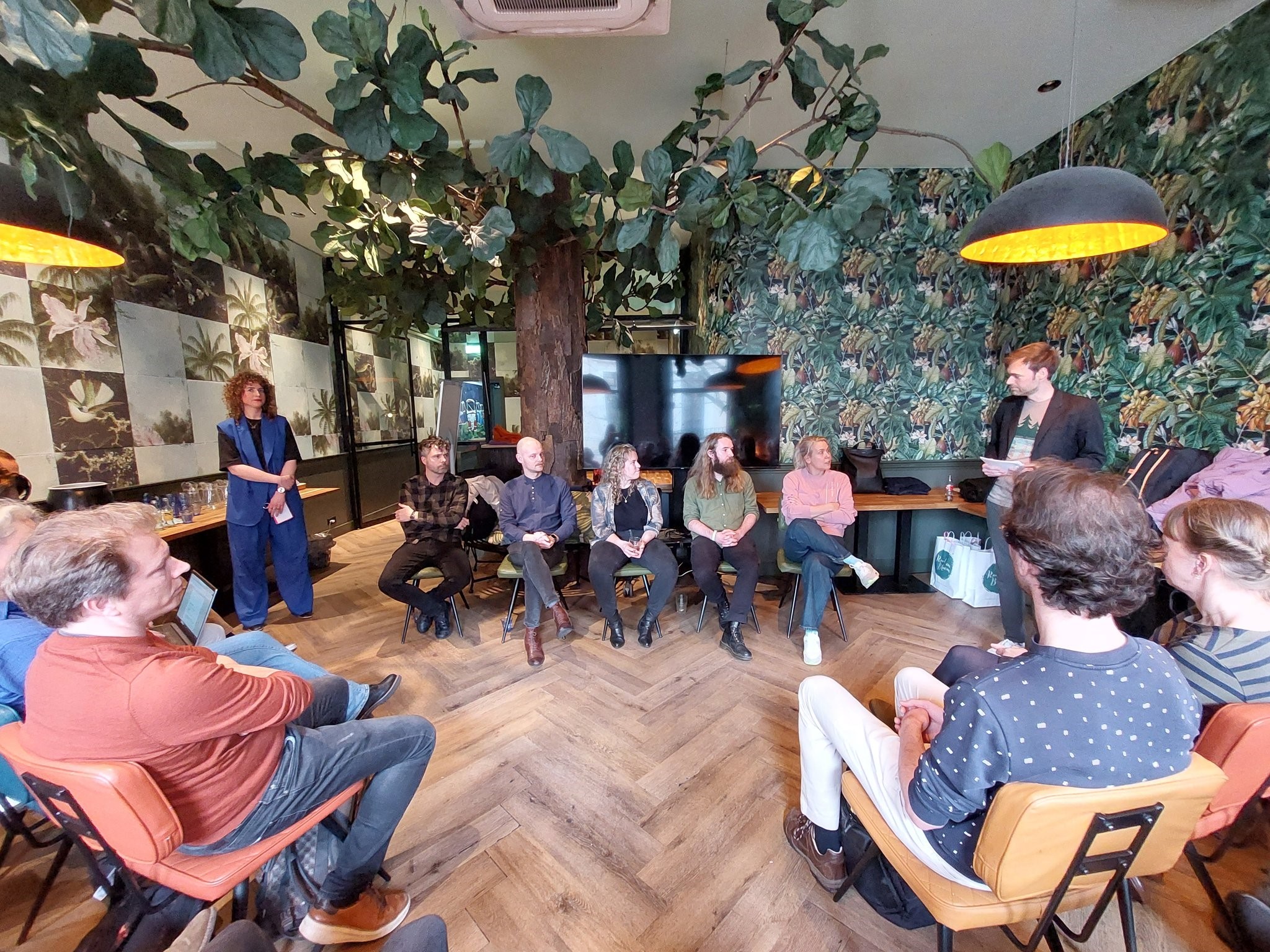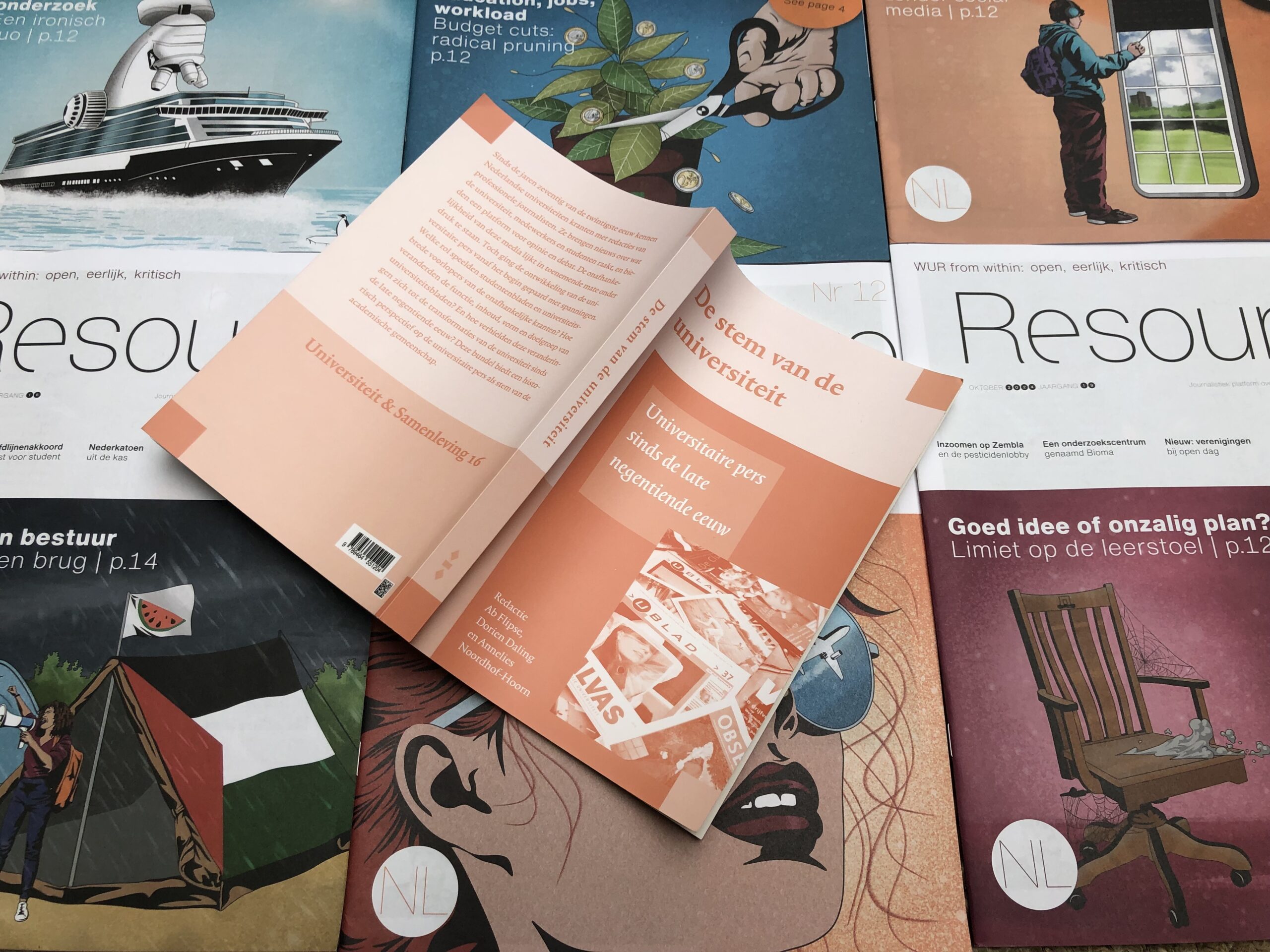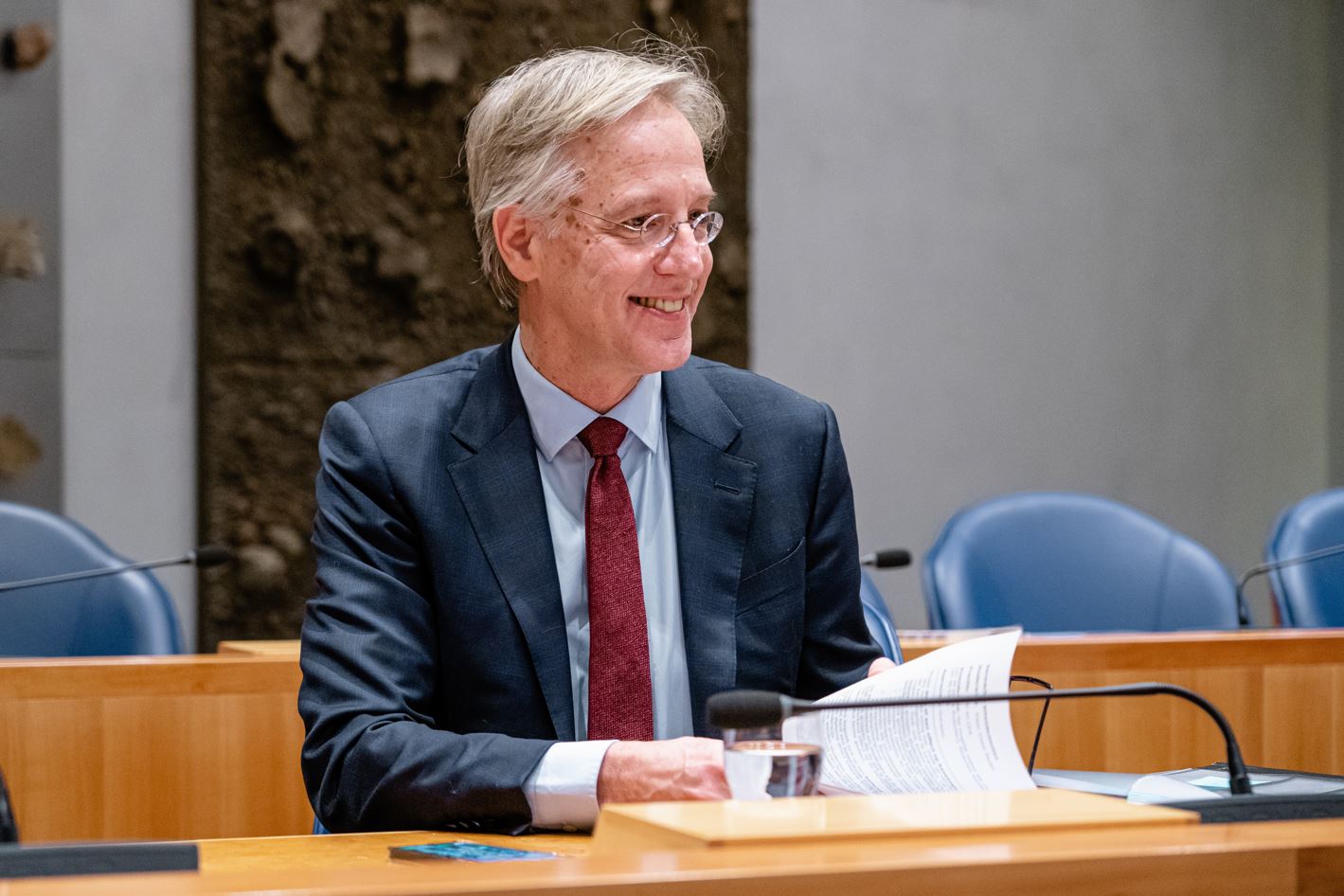Journalists uncovering malpractices at a university or college can be awkward for that institute’s administrators. Censorship, however, is not the solution, according to a room full of journalists who attended the event.
Why are university and college magazines so important, and why must they be independent? Five panel members are lined up in Utrecht, facing a room full of stakeholders. Approximately half of the audience works for a university or college paper. The rest of the audience is made up of editorial board members or freelancers.
The members of the panel have been invited by journalist union NVJ and the Association for Scientific Journalism VWN, who see a “concerning trend”. They raised the alarm after a series of incidents in which the freedom of the press within tertiary education came under threat.
Guard dog
Social scientist Linda Duits, who wrote columns for the Amsterdam university magazine Folia, among others, kicks off the debate. Universities are large, powerful institutes whose power was formerly kept in check by the do-determination bodies and independent magazines. ‘That has deteriorated’, she states. ‘Journalism functions as a guard dog, but you can only be a guard dog if you are not on your boss’ payroll, as you will not bite the hand that feeds.’ She calls it an ‘unhealthy, dictatorial construction.’
There are numerous incidents. In Eindhoven, the university paper turned its website black when the rector barred the publication of an article on conflicts of interest, and the editor-in-chief was fired. Editor Bridget Spoor, also on the panel, is even involved in a whistle-blower case.
Journalism functions as a guard dog, but you can only be a guard dog if you are not on your boss’ payroll, as you will not bite the hand that feeds
Linda Duits, former columnist Folia
The Rotterdam magazine Profielen was recently placed under the communications department. In a commentary, the chief editor wrote that they would have preferred not to have made this change. An incident at the Hogeschool van Arnhem en Nijmegen became national news. An interim manager of the communications department was unamused by a column on ‘bullshit jobs’ at the college and had his own reaction published above the column on the website.
Less gloomy
‘We are paid by the university, and that is to whom we should relate’, Willem Andrée, chief editor of Wageningen University magazine Resource, acknowledges. ‘If you are lucky, the university board understands that a university needs a thorn in its thigh.’ He feels this is the case in Wageningen.
This financial dependence need not be an issue, according to editor-in-chief Ries Agterberg of Utrecht’s DUB, who is a member of the audience. But proper measures must be taken. ‘The NOS news is also funded by the state.’
It is difficult sometimes, but that also makes it fun
Saskia Bongers, editor-in-chief of Delta
Agterberg denies that things are really bad. ‘I am less gloomy.’ There are many recent examples of science journalism in tertiary education. Delta magazine, for example, revealed how the TU Delft unintentionally collaborated with the Chinese army, and Ad Valvas uncovered misconduct within the psychology department.
‘I, too, am not very unhappy’, says Delta editor-in-chief Saskia Bongers. ‘It is difficult sometimes, but that also makes it fun.’ The fact that administrators sometimes duck questions is not something you can really complain about, as they all do it.
Reputation manager
And still, it sometimes goes wrong. Editor Bridget Spoor (Cursor) did not feel independent, she says. A three-part story on social safety became a two-part story because the third part was censored. And what about the editorial board that should have protected them? ‘The chair was a reputation manager’, Spoor says, which results in peels of laughter from the audience.
The risk of self-censorship is always present, but not just in tertiary education. One of the facilitators, science journalist Ronald Veldhuizen, refers to articles on biker gangs or farmers. Caution is never far, he means.
Good statutes
What should be done? Independence must be guaranteed, for example, by proper statutes and editorial boards with the required expertise. Having professors on the board is fine, says Mark Reid of the Leiden University magazine Mare. They are not afraid to push back if a board causes issues.
Linda Duits says there should be a legal solution. Administrators will always say they value independence, but that is not something you should depend upon.
And distribution is also an issue. The magazines were available in hard copy everywhere in the past, but many exist exclusively online now. That, too, is a form of censorship, says Linda Duits, especially if it is not sent to new students and employees.
Solidarity
Editor Elmer Smaling of Erasmus Magazine says that the editors should also show more solidarity amongst themselves. When the Cursor site went black, all other university media could have done the same. ‘But we didn’t manage to get everyone on board.’
The magazines can defend themselves together, says the chief editor of Amsterdam College’s magazine HvanA, Paul Disco. ‘Universities and colleges insure everything except their reputation.’ He has also been called to account on occasion but doesn’t mind. But, if freedom is really under threat, the magazines should band together faster ‘so that a real issue arises for an executive board.’
Tertiary education has a Circle of Editors-in-Chief, which represents the interests of tertiary education media. Willem Andrée (Resource) is the chair of this circle. The circle sent the TU Eindhoven a critical letter when the conflict with the editors arose.
Spokesperson
More topics, ideas and insights were discussed. There were barely any complaints; there were no administrators among the audience and only one spokesperson. His main complaint was that journalists sometimes copy press releases and then add their own names to the byline.
The NVJ and VWN will not set the issue aside. The union is investigating the statutes and aims to support the editors in their independence. The Circle of Editors in Chief will also analyse the statutes.

 Left and right standing: moderators Anne van Kessel and Ronald Veldhuizen. Panel from left to right: Willem Andrée (Resource), Matthijs Valent (NVJ), Bridget Spoor (Cursor), Mark Reid (Mare) and Linda Duits. Photo: VWN.
Left and right standing: moderators Anne van Kessel and Ronald Veldhuizen. Panel from left to right: Willem Andrée (Resource), Matthijs Valent (NVJ), Bridget Spoor (Cursor), Mark Reid (Mare) and Linda Duits. Photo: VWN. 

![[update] University magazine Delft pressured into taking article on misconduct offline](https://www.resource-online.nl/app/uploads/2024/04/Delta-stuk-offline.jpg)